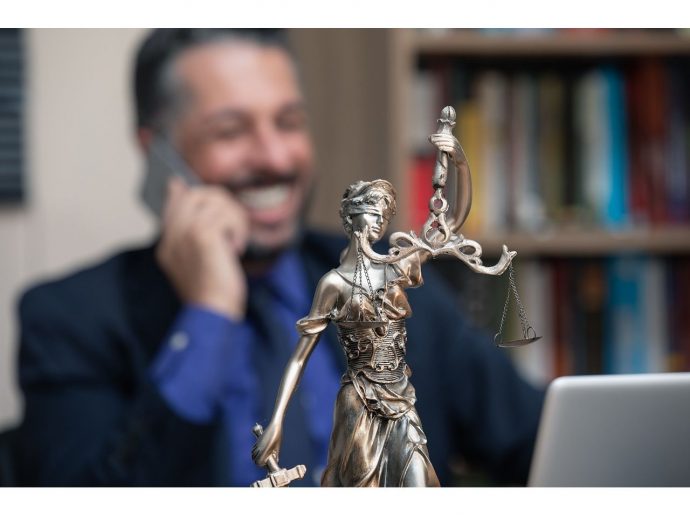Categories more
- Adventures (17)
- Arts / Collectables (15)
- Automotive (37)
- Aviation (11)
- Bath, Body, & Health (77)
- Children (6)
- Cigars / Spirits (32)
- Cuisine (16)
- Design/Architecture (22)
- Electronics (13)
- Entertainment (4)
- Event Planning (5)
- Fashion (46)
- Finance (9)
- Gifts / Misc (6)
- Home Decor (45)
- Jewelry (41)
- Pets (3)
- Philanthropy (1)
- Real Estate (16)
- Services (23)
- Sports / Golf (14)
- Vacation / Travel (60)
- Watches / Pens (15)
- Wines / Vines (24)
- Yachting / Boating (17)
How to Choose a Patent Attorney
Published
07/28/2024When seeking out a patent attorney to guide you through the patent application process, it's crucial to understand your specific needs. Your invention represents a significant investment of time and creativity, and safeguarding your intellectual property is essential.
When you're navigating the complex world of patents, having a patent attorney, particularly an NYC patent attorney, if you’re filing in New York City, by your side is invaluable. These legal experts specialize in patent law and are essential for securing and defending your intellectual property (IP) rights. Qualifications to look out for include:
- Legally recognized to practice before the United States Patent and Trademark Office (USPTO).
- Technical expertise, often with a background in science or engineering, enables them to understand your invention in depth.
Responsibilities include:
- Draft and file patent applications: They craft detailed documentation that outlines your invention's uniqueness.
- Prosecute patents: Attorneys argue on your behalf to obtain a patent grant, responding to USPTO's queries and objections.
- Conduct patent searches and due diligence: To ensure your invention isn't infringing on existing patents.
- Advise on patent strategy: Including how to use your IP for business advantage and how to avoid infringing on others' rights.
- Defend patents in legal disputes: Representing you in case of infringement or litigation.
Choosing an attorney with experience relevant to your industry or technology sector is critical. A professional who understands the specific nuances of your domain can provide bespoke advice.
Factors to Consider When Choosing a Patent Attorney
Selecting the right attorney is an important step when looking to safeguard your invention with a patent. Here’s what to consider:
Qualifications and Technical Expertise
Your patent attorney should be registered to practice before the USPTO and possess a relevant technical degree. They need a profound understanding of your invention's field to draft a precise and robust patent application.
Initial Consultations
Most attorneys offer a preliminary meeting at no cost, giving you a chance to evaluate their proficiency and approachability. Leverage these meetings to find an attorney with whom you feel comfortable.
Billing and Costs
Clarify all billing details beforehand. Ensure you understand the fees for drafting the patent application and subsequent processes, such as responding to rejections by the USPTO.
Attorney’s Experience with the USPTO
Gauge the firm’s reputation and effectiveness in examiner interviews. Such interactions can be crucial for navigating rejections and streamlining the patent examination process.
International Patents and Litigation Capabilities
If your aspirations are global or if you require defense in legal disputes, confirm the firm’s experience with international patent law and litigation.
Comprehensive IP Support
Look for a firm with a broad spectrum of IP services, as protecting your invention may also involve trademarks, copyrights, and other related matters. Remember, you're not just hiring experience; you're also looking for a partner to guide you through the complexities of intellectual property law. Take your time to choose a professional who is not only knowledgeable but also aligns with your vision.
Related Questions
Why Should I Hire a Patent Attorney?
A patent attorney is essential when you're looking to protect your intellectual property rights. Through their specialized legal knowledge, they ensure that your patent application is accurately drafted and meets the stringent criteria of the USPTO, shielding you from the common mistakes that could lead to application rejection.
What's the Difference Between a Patent Agent and a Patent Attorney?
A patent attorney has a comprehensive legal education, which enables them to draft and prosecute patent applications and provide legal advice across a broader spectrum, including litigation in court. In contrast, a patent agent shares the expertise required to prepare and prosecute patents but lacks the qualifications to represent clients in legal proceedings outside of the USPTO.
Can I File a Patent Without an Attorney?
Yes, you can file a patent on your own, known as filing pro se. This might be a suitable option to cut costs, as the filing fees can be significantly reduced for individual inventors. While 85% of patent applications are typically unchallenged, lowering the likelihood of high additional expenses, you should be prepared for the possibility of your application entering litigation, where costs can escalate tremendously.
Conclusion
Selecting the right patent attorney requires carefully considering their expertise and how well they align with your needs. Choosing an attorney with an acute understanding of your invention is important, as well as making sure they can clearly communicate its nuances to patent examiners.















